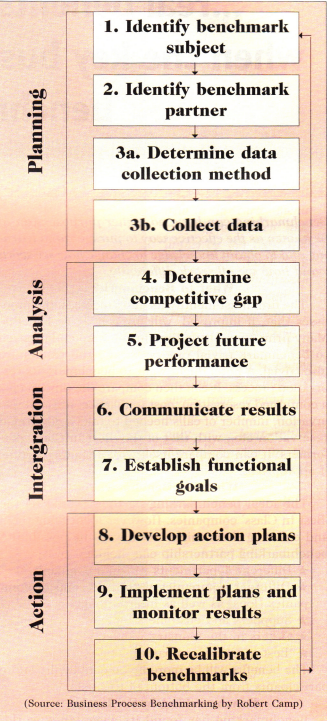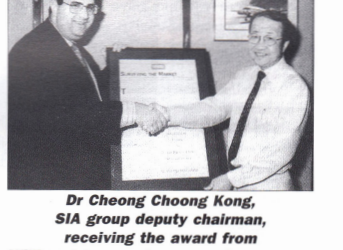S.Arunasalam
Benchmarking is not just another jargon in the management terminology. It is the foundation of a learning organization, a prerequisite to achieve excellence, a success story of a win-win approach, and the ultimate tool for performance improvement.
The Xerox Story the Birthplace of Benchmarking
Before going into what it means, let us look at the history of benchmarking. Rank Xerox Corporation in the US was the market leader in the photocopier business worldwide with a share of about 90% in the 1970s. Their performance measurement system indicated that their overall productivity gain was averaging at about 8%, which was in fact quite good. Everybody at Xerox was obviously happy.
However, in the early eighties, Xerox had only 45% of the market share. This was indeed shocking after a steady productivity gain. Canon had captured Xerox’s market with a low cost strategy. They then realized that when comparing their productivity gains with the previous years (which painted a rosy picture), they had missed out on the competition. Their competitor had made quantum leaps. Shocked by this phenomenon, Xerox sent one of its executive Robert Camp to Fuji Xerox, its Japanese subsidiary. Camp was in for many surprises and at the end of his study he became the ‘father of modern benchmarking.
Camp was surprised to know that Fuji Xerox’s selling price was lower than Rank Xerox’s cost of production. To find out why and how, Camp started studying and comparing each business process in the US and in Japan. After his study he implemented the ‘better’ business processes that were followed in Japan, in the US. They became cheaper and faster. Rank Xerox started its war against Canon again.
What is Benchmarking?
Robert Camp defined Benchmarking as ‘the search for and implementation of best practices.’ Xerox’s definition of benchmarking is ‘the continuous process of measuring our products, services and practices against our toughest competitors or those companies known as business leaders.’
It is nothing but comparing our business strategies (strategic benchmarking), business statistics (statistical benchmarking) and the business processes (process benchmarking) with that of others who do it (or have it) better. As we are in the process era (with Business Process Reengineering (BPR), Activity Based Costing, etc.,) process benchmarking is the hottest thing now.

Why Benchmark?
Benchmarking provides a view of reality. In a study performed by the Industrial Technology Insti- tute in Ann Arbor, Michigan, manufacturers in a par- ticular industry were asked to rank themselves within their industry. The results were interesting: 50% placed themselves in the top 10% 75% placed themselves in the top 25% 98% placed themselves in the top 50% Benchmarking provides an opportunity to learn from others and to introduce better ways of doing things in organizations. Robert Camp) Robert Camp in his latest book ‘Business Process Benchmarking states:
Ultimately, there may be no other way to learn that will keep pace with change. Organizations cannot afford more competitive crises from not keeping active pace with outside world. That is fatal.
Benchmarking can have no higher purpose than to be known as the effective way to pursue rapid learning and to obtain knowledge to change how we work and how we all work differently.’
What to Benchmark?
The firm must identify its key processes, the processes that, if improved, will bring in large benefits. Many firms spend little time in this step and proceed to benchmark trivial processes, and the results are also trivial. A hotel might want to benchmark its reservation process. It can then compare the time to take a confirmed reservation, cost to take a confirmed reservation, number of calls needed to take a confirmed reservation etc., with that of the ‘Best in Class’ performers. It can compare itself with a leading airline, if appropriate.
Where to Benchmark?
The ideal benchmarking partners would be the ‘Best in Class’ companies. However identifying them and enlisting them might not always be possible. A benchmarking partnership can include:
- Different departments within a company.
- Different companies within a group of com- panies (local as well as international)
- Suppliers and customers
- Others in the industry
- ‘Best in Class’ companies
The benefits will be more if you could enlist more participants from the bottom of this list.
Benchmarking in Sri Lanka
Benchmarking has found its acceptance world wide. Eight of ‘America’s Most Admired Companies’ (Fortune’s survey) have formal benchmarking. Benchmarking is a key criterion for the coveted Malcolm Baldridge National Quality Award.
However, many people are skeptical about application of this wonderful tool in our country. As the market place is quite small and almost all the big business firms are centered in Colombo, their fears about sharing information are not totally unfounded. However, one should ‘feel the fear and do it anyway.’ Firms should form benchmarking partnership based on trust and mutual gains.
The benchmarking partnerships are formed generally within firms that have similar processes but who may not be competitors. For example, a partnership to benchmark the process of checking creditworthiness can be formed by a cellular company, a credit card company, a leasing company and a bank. Though the level of importance might vary and will determine the process in each of these organizations, identifying the best processes will definitely benefit all the participants as they will be able to improve at least a few processes.
In some cases, consulting firms are hired by the participants to manage this benchmarking process. By doing so companies are assured of expert knowledge and confidentiality.
In what is becoming an increasing trend many companies in Sri Lanka regularly benchmark the remuneration paid to their executives against the market by way of salary surveys. Generally, these surveys stop with comparing the salaries and benefits. However, it can be extended to other human resource practices as well, such as time taken to fill in a vacancy, cutting down on absenteeism and labor turnover, time taken for performance appraisal etc. How- ever, the real benefits will come only when the key business processes are benchmarked.
With Business Process Reengineering steadily catching up in Sri Lanka, benchmarking (being an essential ingredient in BPR), is also bound to catch on. As in many other instances, it is he who dares who wins.
The writer is a management consultant at a leading international consulting firm. He is also a qualified electronics engineer and a qualified marketer.



